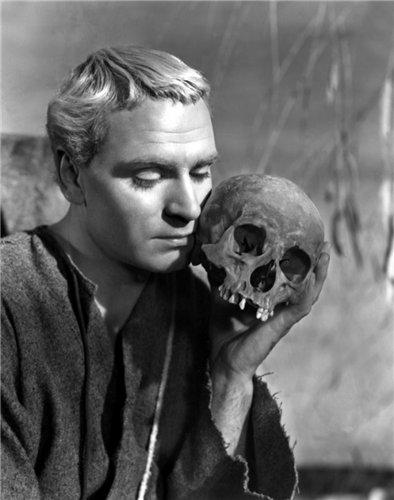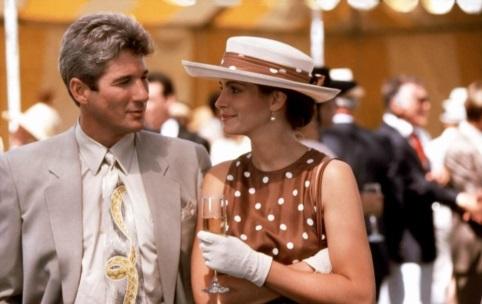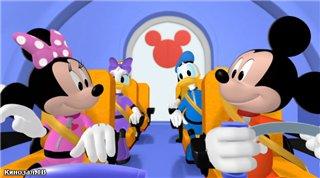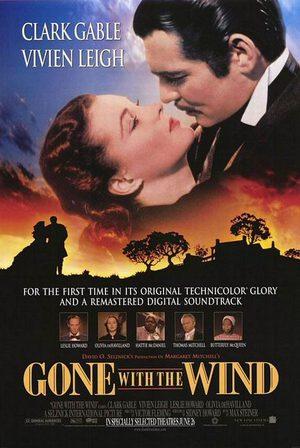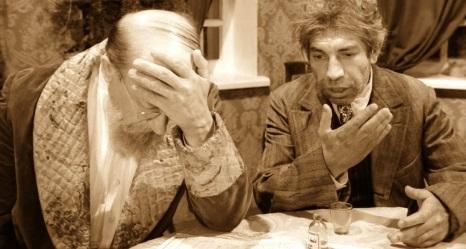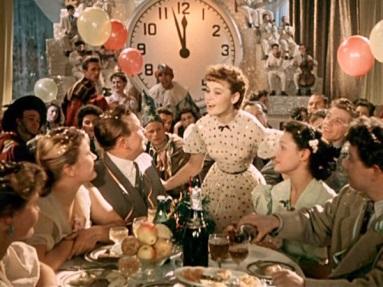find in the text the names of these films зарабатывая на жизнь история
Упражнения по теме Cinema / Кино
Письменные и устные упражнения по теме Cinena / Кино
Просмотр содержимого документа
«Упражнения по теме Cinema / Кино»
1. Read the text and make the exercises below.
Cinema: How It All Began
The modern theatre developed from the Ancient Greek one, so it has several millennia of history.
Cinema is much younger than theatre. It was born at the end of the 19 th century. The first people who showed the first films to a paying public were the Lumière [‘lu:mieə] Brothers of France. They did this at the Grand Café, Boulevard des Capucines [‘bu:ləva:də,kɔpu’tʃini], Paris, on the 20 th February 1896. This was the first cinema show and it was quickly followed by many others in all parts of the world. The first films showed moving people and transport or newsreels [‘nju:zri:lz] of processions and wars, and short comedies. In 1901 France was the first country to produce a dramatic film, The Story of a Crime, which was followed by The Great Train Robbery in the United States in 1903.
At first, films were shown anywhere: in music halls, clubs and shops. By 1908, special film theatres were being built to give regular programmes. At this time cinema rapidly developed in both the New and the Old World. Charlie Chaplin made his first film, Making a Living, in 1914 in the USA.
The Russian film industry was now going its own way. It produced such great films as Protazanov’s The Queen of Spades (1916) and Father Sergius [‘sə:ʤiəs] (1918). Both films starred Ivan Mosjoukhin, the famous actor. A little later Russia’s great achievement in cinema was connected with its directors such as Eisenstein [‘aizinstain] (The Battleship “Potemkin”), Pudovkin (Mother), Kuleshov (By the Law), Dovzhenko (Earth), and others.
Then, in 1927, Warner Brothers in Hollywood made the first film in which an actor sang and spoke. The film was called Jazz Singer. It opened a new era in films – the era of the “talkies”. The film mostly told its story with titles, but it had three songs and a short dialogue. There were long lines of people in front of the Warner Theatre in New York. The silent film was dead within a year. The first one hundred percent sound film, Lights of New York, appeared in 1928. The first colour film were made in the 1930s, but the black-and-white films are made even today.
Exercise 1. Answer the questions.
1. When cinema was born?
2. What country produced the first dramatic film?
3. Why is the film Jazz Singer important in the history of cinema?
4. How many names of films, actors and directors mentioned in the text can you remember?
1. публика, которая платит деньги
2. хроники новостей, показывающие процессии и войны
3. искусство кино быстро развивалось
4. великие достижения России в области кинематографии
5. с помощью титров
8. полностью звуковой фильм
10. черно-белые фильмы
Exercise 3. Find in the text the names of these films.
1. Зарабатывая на жизнь
2. История преступления
5. Броненосец «Потемкин»
6. Большое ограбление поезда
2. Match the names of these films with their types.
a film about space travel or life in an imaginary future
a film about criminals and detectives
a film with lots of music and dance
a science fiction film
a film about cowboys and life in the Wild West
a funny film with a happy ending
a film in which mysterious and frightening things happen
3. Guess the film profession.
1. You tell the actors what to do: you are
2. Your uncle is financing the film. What is he called?
c) The bank manager
3. Your sister created the story and wrote the actors’ words. She is:
4. The person who puts all the different pieces of the film together is called:
4. Guess what genres these films can be referred. Name them:
5. Match the first names with the surnames of famous directors.
Reading for Information
11. Read the text once very carefully and complete the sentences after it with the appropriate variants.
Theatre and Cinema: How It All Began
Theatrical drama, as we understand it today, is based on three things. First, there must be an actor or actors speaking or singing. Second, there must be some dramatic conflict (or different relations) between actors. The two sides may be enemies, they may be friends that can’t agree with each other, or they may be divided by misunderstanding. Third, and just as important as the other two, there must be an audience following the progress of the drama.
The first theatrical performances of this kind took place in ancient Greece. The Greek drama developed from hymns sung to Dionysius, the god of wine and good life. But it did not become true theatre until such performances included stories of the other gods and actors to represent them.
The first known actor was called Thespis. He was the leading singer and travelled from his birthplace to Athens in a cart that carried all his belongings and could be turned into a stage for performance. In Athens he won a prize at the new drama festival. People believe that he was also the first man who separated himself from other singers to make a dialogue with them. He was the first professional performer who was brave enough to play a god. Before him this role had always belonged to priests or kings.
Cinema is much younger than theatre. It was born at the end of the 19th century. The first people who showed the first movies to a paying public were the Lumiere Brothers of France. They did this at the Grand Cafe, Boulevard des Capucines, Paris, on the 20th February 1896. This was the first cinema show and it was quickly followed by many others in all parts of the world. The first films showed moving people and transport or newsreels of processions and wars, and short comedies. In 1901 France was the first country to produce a dramatic film, “The Story of a Crime”, which was followed by “The. Great Train Robbery” in the United States in 1903.
15. A. Find in the first three paragraphs of the text at least 10 international words.
В. Guess what the international words from paragraphs 4 and 5 are.
“Theatre and cinema: How it all began”
Кошкарбекова Гульназ Орынбековна
The theme:“Theatre and cinema: How it all began”
educational: to get acquainted with the text, to read and discuss the text, doing tasks and exercises with grammar material “passive voice”;
developing: to develop pupils’ skills and habits in reading, writing, comparing; to enlarge pupils’ thinking and speaking;
cultural: to get more information about theatres and cinemas of the world, to bring-up to know more about foreign culture;
The type of the lesson: demonstrative lesson
The methods of the lesson: working at the text, doing tasks.
Visual aids: slides, active board, English VII textbook and workbook, cards with the
The outline of the lesson:
Checking-up the homework.
Doing tasks on the text.
Revision of the grammar material.
Consolidation of the given material.
The end of the lesson.
The procedure of the lesson.
Asking of the date, day and about weather?
Who is on duty today?
Who is absent today?
What is the date today?
What is the day today?
What is the weather like today?
Checking-up the homework.
— to read and translate the text, retelling of the text, find more facts about theatres and cinemas of the world.
— revision of the grammar material “Passive voice. Indefinite forms.”
III. Doing tasks on the text.
Now that you’ve read the text once, say:
1. In what country theatre was born; 2. Why we remember Thespis; 3. When cinema was born; 4. What country produced the first dramatic film; 5. Why the film Jazz singer is important in the history of cinema; 6. How many names of films, actors and actresses mentioned in the text you can remember; 7. Into what parts the text can be divided logically.
Find in the text the names of these films:
Find in the first three paragraphs of the text at least 10 international words:
Theatre, theatrical, drama, dramatic, actor, conflict, audience, progress, hymn, represent, prize, festival, separate, dialogue, professional, role, relation, performance, base, different, divide, brave.
Guess what the international words from paragraphs 4 and 5 are:
IV. Warm-up activity.
V. Revision of the grammar material.
— At first let’s do the exercise from activity book:
Exercise 5.p.70. Write Passive sentences to express the same.
1. You can reserve tickets for the Bolshoi Theatre performances.
2. The actors shouldn’t disappoint the audience.
3. People must do away with such bad habits as smoking.
4. You don’t have to share this textbook.
5. You ought to drill grammar rules.
6. You can’t make lazy make lazy pupils do their homework.
7. You should turn down the radio.
8. People don’t have to weigh their hand luggage at the airport.
9. You must transport the goods at once.
10. Students ought to translate this text and memorize it.
I’ll give you colorful cards with the tasks on grammar material.
Yellow cards are easy tasks, blue cards are difficult tasks, and red cards are very difficult tasks.
Yellow cards – easy tasks
1. Write passive sentences in Simple Present.
The documents / print
The litter / throw away
The book / read / not
The songs / sing / not
The food / eat / not
The shop / close / not
2. Write passive sentences in Simple Past.
The lights / switch on
This computer / sell / not
The car / stop / not
The tables / clean / not
The children / pick up / not
3. Present Simple Passive or Past Simple Passive?
This room usually (clean) by my brother.
These books and magazines (sell) everywhere.
Usually she (meet) at the station by her relatives.
Every year my old uncle (give) a cheque and a present by his manager.
English (speak) all over the world.
The car (drive) well by my father. I can’t drive at all.
The room (warm) by an electric fire when it is cold.
The books written by Mark Twain (read) by children with great interest.
He (show) the way to the station.
They wanted to go to the cinema, but all the seats (sell) out.
Beautiful stamps (receive) by a member of the young stamp collectors circle.
The pupils of our class took care of the young trees which (plant) last autumn.
This funny episode often (talk) about in our school.
The day before yesterday we (invite) to the restaurant by Tom Jenkins.
Blue cards – difficult tasks
1. Complete the sentences (Active or Passive Voice). Use Simple Present.
In summer, more ice-cream (eat) than in winter.
She (call) her grandparents every Friday.
He (take) his medicine every day.
Jane (take / not) to school by her father.
We (go) to school by bus.
She (work / not) for a bank.
Milk (keep) in the refrigerator.
2. Complete the sentences (Active or Passive Voice). Use Simple Past.
They (visit) their granny.
We (visit) by our teacher.
My friend Paul (bear) in Dallas.
She (go) to school in Boston.
Antony (grow up) in the country.
The new shopping centre (build) last year.
The film (produce / not) in Hollywood.
Barbara (know) James very well.
The jewels (hide / not) in the cellar.
We (spend / not) all day on the beach.
3. Complete the sentences (Active or Passive Voice). Use Future (will).
The house (build) here.
The match (win / not) by our team.
The weather (improve / not) tomorrow.
The trees (cut) down.
The meeting (cancel / not).
They (do / not) that again.
Red cards are very difficult tasks.
Complete the sentences (Active or Passive Voice). You must either use Simple Present or Simple Past.
The Statue of Liberty (give) to the United States by France.
It (be) a present on the 100th anniversary of the United States.
The Statue of Liberty (design) by Frederic Auguste Bartholdi.
It (complete) in France in July 1884.
In 350 pieces, the statue then (ship) to New York, where it (arrive) on 17 June 1885.
The pieces (put) together and the opening ceremony (take) place on 28 October 1886.
The Statue of Liberty (be) 46 m high (93 m including the base).
The statue (represent) the goddess of liberty.
She (hold) a torch in her right hand and a tablet in her left hand.
On the tablet you (see / can) the date of the Declaration of Independence (July 4, 1776).
Every year, the Statue of Liberty (visit) by many people from all over the world
Consolidation of the given material.
Today we’ve discussed the text and revised grammar material. Have you got any questions for me?
VII. Giving homework.
Ex: 13.p.218. ex:4.A.B.P.69.
IX. The end of the lesson.
The lesson is over. Good – bye!
Курс повышения квалификации
Дистанционное обучение как современный формат преподавания
Курс повышения квалификации
Специфика преподавания английского языка с учетом требований ФГОС
Курс профессиональной переподготовки
Английский язык: теория и методика преподавания в образовательной организации
Кошкарбекова Гульназ Орынбековна
The theme:“Theatre and cinema: How it all began”
a) educational: to get acquainted with the text, to read and discuss the text, doing tasks and exercises with grammar material “passive voice”;
b) developing: to develop pupils’ skills and habits in reading, writing, comparing; to enlarge pupils’ thinking and speaking;
c) cultural: to get more information about theatres and cinemas of the world, to bring-up to know more about foreign culture;
The type of the lesson: demonstrative lesson
The methods of the lesson: working at the text, doing tasks.
Visual aids: slides, active board, English VII textbook and workbook, cards with the
The outline of the lesson:
I. Organization moment.
II. Checking-up the homework.
III. Doing tasks on the text.
IV. Warm-up activity.
V. Revision of the grammar material.
VI. Consolidation of the given material.
VII. Giving homework.
VIII. Putting marks.
IX. The end of the lesson.
The procedure of the lesson.
I. Organization moment:
b) Asking of the date, day and about weather?
— Who is on duty today?
— Who is absent today?
— What is the date today?
— What is the day today?
— What is the weather like today?
II. Checking-up the homework.
— to read and translate the text, retelling of the text, find more facts about theatres and cinemas of the world.
— revision of the grammar material “Passive voice. Indefinite forms.”
III. Doing tasks on the text.
A) Now that you’ve read the text once, say:
1. In what country theatre was born; 2. Why we remember Thespis; 3. When cinema was born; 4. What country produced the first dramatic film; 5. Why the film Jazz singer is important in the history of cinema; 6. How many names of films, actors and actresses mentioned in the text you can remember; 7. Into what parts the text can be divided logically.
B) Find in the text the names of these films:
C) Find in the first three paragraphs of the text at least 10 international words:
Theatre, theatrical, drama, dramatic, actor, conflict, audience, progress, hymn, represent, prize, festival, separate, dialogue, professional, role, relation, performance, base, different, divide, brave.
D) Guess what the international words from paragraphs 4 and 5 are:
IV. Warm-up activity.
V. Revision of the grammar material.
— At first let’s do the exercise from activity book:
Exercise 5.p.70. Write Passive sentences to express the same.
1. You can reserve tickets for the Bolshoi Theatre performances.
2. The actors shouldn’t disappoint the audience.
3. People must do away with such bad habits as smoking.
4. You don’t have to share this textbook.
5. You ought to drill grammar rules.
6. You can’t make lazy make lazy pupils do their homework.
7. You should turn down the radio.
8. People don’t have to weigh their hand luggage at the airport.
9. You must transport the goods at once.
10. Students ought to translate this text and memorize it.
— I’ll give you colorful cards with the tasks on grammar material.
— Yellow cards are easy tasks, blue cards are difficult tasks, and red cards are very difficult tasks.
— Yellow cards – easy tasks
1. Write passive sentences in Simple Present.
The documents / print
The litter / throw away
The book / read / not
The songs / sing / not
The food / eat / not
The shop / close / not
2. Write passive sentences in Simple Past.
The lights / switch on
This computer / sell / not
The car / stop / not
The tables / clean / not
The children / pick up / not
3. Present Simple Passive or Past Simple Passive?
Blue cards – difficult tasks
1. Complete the sentences (Active or Passive Voice). Use Simple Present.
In summer, more ice-cream (eat) than in winter.
She (call) her grandparents every Friday.
He (take) his medicine every day.
Jane (take / not) to school by her father.
We (go) to school by bus.
She (work / not) for a bank.
Milk (keep) in the refrigerator.
2. Complete the sentences (Active or Passive Voice). Use Simple Past.
They (visit) their granny.
We (visit) by our teacher.
My friend Paul (bear) in Dallas.
She (go) to school in Boston.
Antony (grow up) in the country.
The new shopping centre (build) last year.
The film (produce / not) in Hollywood.
Barbara (know) James very well.
The jewels (hide / not) in the cellar.
We (spend / not) all day on the beach.
3. Complete the sentences (Active or Passive Voice). Use Future (will).
The house (build) here.
The match (win / not) by our team.
The weather (improve / not) tomorrow.
The trees (cut) down.
The meeting (cancel / not).
They (do / not) that again.
Red cards are very difficult tasks.
Complete the sentences (Active or Passive Voice). You must either use Simple Present or Simple Past.
The Statue of Liberty (give) to the United States by France.
It (be) a present on the 100th anniversary of the United States.
The Statue of Liberty (design) by Frederic Auguste Bartholdi.
It (complete) in France in July 1884.
In 350 pieces, the statue then (ship) to New York, where it (arrive) on 17 June 1885.
The pieces (put) together and the opening ceremony (take) place on 28 October 1886.
The Statue of Liberty (be) 46 m high (93 m including the base).
The statue (represent) the goddess of liberty.
She (hold) a torch in her right hand and a tablet in her left hand.
On the tablet you (see / can) the date of the Declaration of Independence (July 4, 1776).
Every year, the Statue of Liberty (visit) by many people from all over the world
VI. Consolidation of the given material.
— Today we’ve discussed the text and revised grammar material. Have you got any questions for me?
Lesson 14. № 18. ГДЗ Английский язык 5 класс Верещагина. Помогите найти информацию в тексте
Here are some facts about life on the continent. Find in the text and read out the same information about the British way.
On the continent:
— People seldom speak about weather.
— Sunday papers appear on Monday.
— Some people like cats, others don’t.
— People are proud of the things they know. They try to show off their knowledge____
— You can offend people in many ways: if you laugh at them or make jokes about their life and work.
— People either tell you the truth or lie.
— On Sundays even the poorest person puts on his best suit and
tries to look nice and respectable.
— Many continentals think life is a game.
— People have good food.
Здесь несколько фактов о жизни на континенте. Найдите в тексте и прочитайте ту же информацию о Британии.
In England if you don’t repeat the phrase «It’s a nice day today, isn’t it?» two hundred times a day people are surprised and think that you are very dull.
In England papers appear on Sunday.
In England cats are very special animals. Everyone loves them and takes care of them.
But the English take everything with a sense of humour.
In England they hardly ever lie, but they don’t tell you the truth either.
In England even the richest man dresses in some old clothes and doesn’t shave.
The English think cricket is a game.
In England people have good table manners.
Учебник Spotlight 7. Student Book. Страница 30
3с. Against all odds — Вопреки всему
1. Is the person in the picture a famous scientist? inventor? actor? politician? What is his name? What do you know about him? Listen, read and find out. — Человек на картинке известный ученый? изобретатель? артист? политик? Как его зовут? что ты знаешь о нем? Послушай, прочитай и разузнай.
The person I admire (by Jenny Smith)
The person that I admire the most is scientist Stephen William Hawking. He was born on 8-th January 1942, in Oxford, England. Stephen is famous for his work on the basic laws of the universe. He is also famous for the way he copes with having Motor Neuron Disease (MND).
Stephen studied Physics at University College, Oxford. He was diagnosed with MND while still at university. Stephen slowly lost control of his muscles and eventually he couldn’t walk. Despite this, he finished his studies, got married and started a career at the university.
Some years later, he lost his voice completely. Unfortunately, he was in the middle of writing a book at the time and suddenly had no way to communicate other than blinking. Today, a computer system on his wheelchair enables him to speak. Of his many books, A Brief History of Time is Stephen’s bestseller.
The reason I admire him is because he is very intelligent and brave, and he never gives up on life. When I think of him, I know that anything is possible as long as you really want it and work hard to achieve it.
Человек, которым я восхищаюсь (автор Дженни Смит)
Человек, которым я больше всех восхищаюсь — ученый Стивен Уилльям Хокинг. Он родился 8-го января 1942 года, в Оксфорде, Англии. Стивен известен за свою работу над законами Вселенной. Он также известен тем, как он справляется с заболеванием двигательных нейронов (Motor Neuron Disease (MND).
Стивен изучал физику в университете Оксфорда. Ему был поставлен диагноз MND, когда он еще был в университете. Стивен медленно терял контроль над своими мышцами и в конце концов он не смог ходить. Несмотря на это, он окончил учебу, женился и начал карьеру в университете.
Через несколько лет он полностью потерял голос. К сожалению, его работа над книгой была в самом разгаре, как он внезапно потерял возможность все возможности коммуникации, кроме моргания. Сегодня компьютерная система на его кресле-коляске позволяет ему говорить. Из всего множества его книг «Краткая история времени» является бестселлером.
Я восхищаюсь им, потому что он очень умный и храбрый, и он никогда в своей жизни не сдается. Когда я думаю о нем, я знаю, что все возможно, если очень сильно этого хотеть и много над этим работать.
Примечание: Великий британский физик-теоретик Стивен Хокинг умер 14 марта 2018 года в возрасте 76 лет.
Stephen William Hawking is a famous English scientist. I know that he wrote a lot of books about our Universe. Also I know that Stephen Hawking died on 14 March 2018 at the age of 76. — Стивен Уилльям Хокинг — знаменитый английский ученый. Я знаю, что он написал много книг о нашей Вселенной. Также я знаю, что Стивен Хокинг умер 14 марта 2018 года в возрасте 76 лет.
2. Which of these adjectives best describe Hawking? Give reasons. — Какие из этих прилагательных лучше всего описывают Хокинга? Приведи обоснование.
I think determined, brave and ingenious perfectly describe Stephen Hawking. He never gave up during his hard life. He continued his studies even after he knew he had the illness. And after that he worked hard and succeeded. He did a lot to make science popular and understandable. He wrote a book which became a bestseller in the different countries.
Я думаю — целеустремленный, стойкий и гениальный превосходно описывают Хокинга. Он никогда не сдавался в своей трудной жизни. Он продолжил учебу даже после того, как узнал, что болен. После этого он много работал и преуспел. Он много сделал для того, чтобы наука была популярной и понятной. Он написал книгу, которая стала бестселлером в разных странах.
3. a) Find the prepositions that follow these words in the text. Use them in sentences of your own. — Найди предлоги, которые влияют на эти слова в тексте. Используй их в собственных предложениях.
b) Explain the words in bold. — Объясните слова, выделенные жирным шрифтом.
4. Read the spidergram, then complete the sentences. Give your own examples. — Прочитай диаграмму, затем дополни предложения.
Примечание: Глагол give в качестве фразового глагола является одним из наиболее применяемых носителями английского языка. Давайте рассмотрим некоторые из его основных значений:
5. Use the headings to complete the paragraph plan. — Используй заголовки, чтобы закончить план текста.
Organising your writing — Как писать
The first paragraph introduces the topic by giving a short summary of it. The second and third paragraphs are the main body. Each paragraph introduces a new idea and explains it. — Первый параграф представляет тему, давая краткое его содержание. Второй и третий параграфы составляют основную часть. Каждый параграф представляет новую идею и объясняет ее.
The last paragraph is the conclusion which also gives a short summary of the topic in other words. — Последний параграф — это заключение, которое тоже дает короткое содержание темы другими словами.
6. Portfolio: Write an article about a person you admire for the school magazine. Use the paragraph plan in Ex. 5 to help you and the text in Ex.1 as a model. (80-100 words) — Портфолио: Напишите статью о человеке, которым вы восхищаетесь, для школьного журнала. Используйте план в упражнении 5 и текст в упражнении 1 в качестве модели (80-100 слов).
The person I admire most is Angelina Jolie. She was born on 4th June 1975 and grew up in Los Angeles where her father worked as an actor. She studied at Lee Strasberg Theatre Institute and acted in theatre and music videos. Later, she worked as a model in London and New York before becoming a famous Hollywood actress. She has starred in many great films. The reason I admire Angelina is because she is a great actress. She is also very brave because she does her own stunts sometimes. I also admire her because she does a lot of work to help poor and sick children around the world and gives a lot of money to charity.
Человек, которым я восхищаюсь больше всего — Анджелина Джоли. Она родилась 4 июня 1975 года и выросла в Лос-Анджелесе, где ее отец работал актером. Она училась в Театральном институте Ли Страсберг и играла в театре и музыкальных клипах. Позже, она работала моделью в Лондоне и Нью Йорке перед тем как стать знаменитой актрисой Голливуда. Она снималась во многих замечательных фильмах. Я восхищаюсь Анджелиной потому что она великая актриса. Она также очень отважна, поскольку иногда сама делает собственные трюки. Я также восхищаюсь ей, потому что она много работает, чтобы помочь бедным и больным детям по всему миру и дает много денег на благотворительность.
